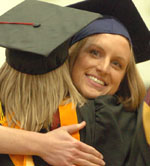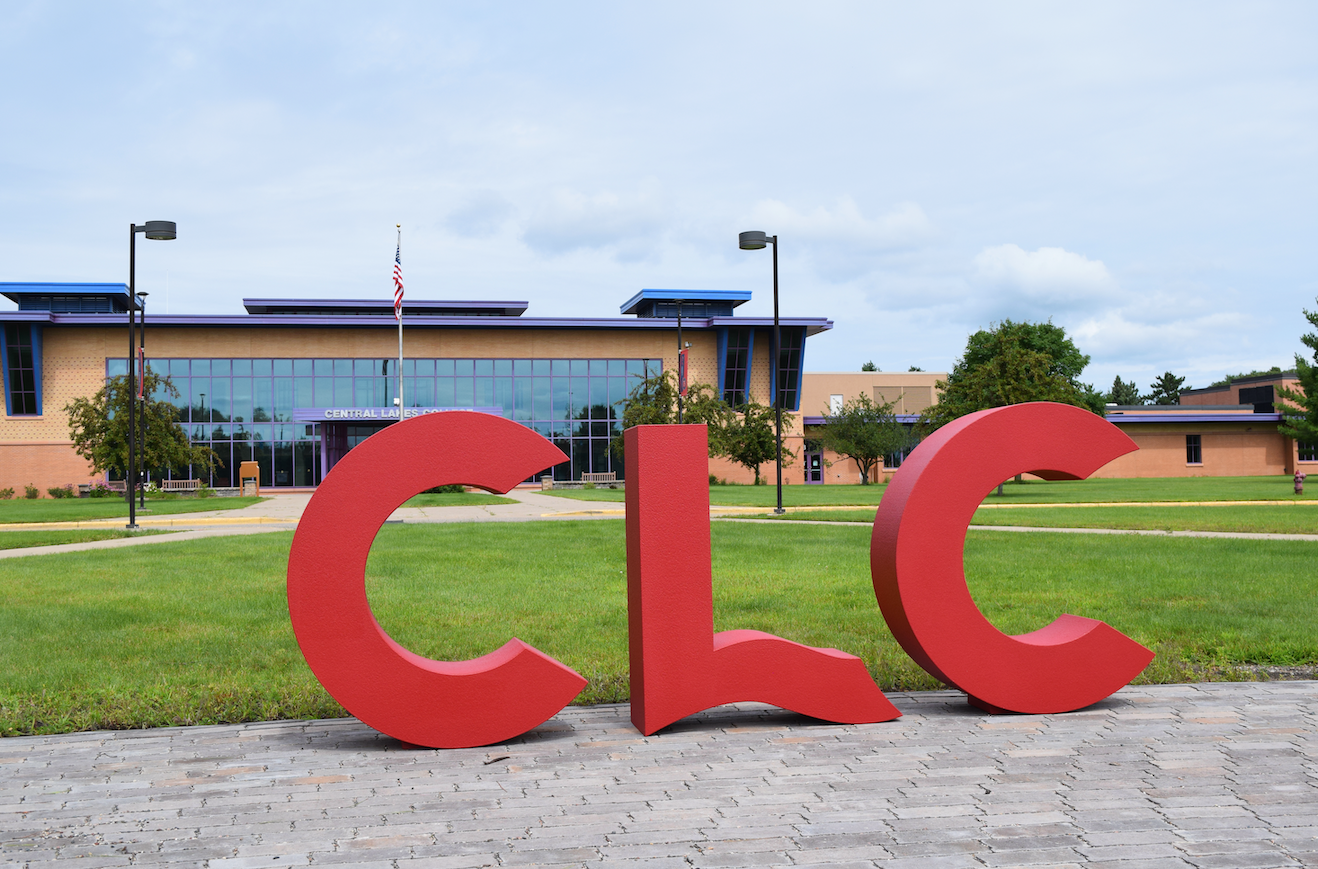 Central Lakes College, Brainerd and Staples, for the second straight year
Central Lakes College, Brainerd and Staples, for the second straight yearhas been named one of the top 120 community colleges in the United States. The Aspen Institute identified 120 community
colleges — 10 percent of all institutions — using a formula that assesses
performance and improvement in four areas: graduation rates, degrees awarded,
student retention rates, and equity in student outcomes. The College Excellence
Program, directed by the Washington, D.C.-based Aspen Institute, challenges
Central Lakes College and the 119 other institutions to compete for prize money
from a $1 million fund to be given to the select few with the most innovative
strategies and measurable student success.
“The designation by the
Aspen Institute that CLC is ‘one of the nation’s 120 best community colleges’
recognizes the great teaching and learning that takes place at CLC because of
our outstanding faculty, dedicated staff, and regional partners,” said Dr.
Larry Lundblad, president of the community and technical college.
Aspen Institute that CLC is ‘one of the nation’s 120 best community colleges’
recognizes the great teaching and learning that takes place at CLC because of
our outstanding faculty, dedicated staff, and regional partners,” said Dr.
Larry Lundblad, president of the community and technical college.
He said the college has earned its place among the best by insisting on
high standards for learning, college completion without delay, and serving as a
training ground for jobs that pay competitive wages.
high standards for learning, college completion without delay, and serving as a
training ground for jobs that pay competitive wages.
Ahead for CLC is a year-long research process into how well the college’s students
learn, complete degrees, and get jobs with competitive wages after graduating.
A full list of the 120 community colleges is available at www.AspenPrize.org.
learn, complete degrees, and get jobs with competitive wages after graduating.
A full list of the 120 community colleges is available at www.AspenPrize.org.
Prize winners will be announced in March 2013.
CLC joins six other two-year colleges in Minnesota
which prevailed in the first round using nationally available data. The others
are Alexandria Technical and Community College, Minnesota State Community and
Technical College (Fergus Falls), Minnesota West Community and Technical
College (Granite Falls), Northland Community and technical College (Thief River
Falls), Rainy River Community College (International Falls), and Ridgewater
College (Willmar).
which prevailed in the first round using nationally available data. The others
are Alexandria Technical and Community College, Minnesota State Community and
Technical College (Fergus Falls), Minnesota West Community and Technical
College (Granite Falls), Northland Community and technical College (Thief River
Falls), Rainy River Community College (International Falls), and Ridgewater
College (Willmar).
The previous winner of the Aspen Prize for Community College Excellence
was 70,000-student Valencia College of Orlando, Florida. Central Lakes College annually
serves about 6,000 full- and part-time students.
was 70,000-student Valencia College of Orlando, Florida. Central Lakes College annually
serves about 6,000 full- and part-time students.
The 120 community colleges announced today were selected from a
national pool of over 1,000 public two-year colleges using publicly available
data on student outcomes. The data were analyzed by an expert advisory
committee co-chaired by William Trueheart, CEO of Achieving the Dream, and
Keith Bird, former chancellor of the Kentucky Community College System.
national pool of over 1,000 public two-year colleges using publicly available
data on student outcomes. The data were analyzed by an expert advisory
committee co-chaired by William Trueheart, CEO of Achieving the Dream, and
Keith Bird, former chancellor of the Kentucky Community College System.
These community colleges have been invited to submit applications
containing detailed data on degree/certificate completion (including progress
and transfer rates), labor market outcomes (employment and earnings) and
student learning outcomes. They must demonstrate that they deliver exceptional
student results for all students – including those who come from racial
minority and/or low-income backgrounds – and also use data to inform decisions
and continually improve over time.
containing detailed data on degree/certificate completion (including progress
and transfer rates), labor market outcomes (employment and earnings) and
student learning outcomes. They must demonstrate that they deliver exceptional
student results for all students – including those who come from racial
minority and/or low-income backgrounds – and also use data to inform decisions
and continually improve over time.
Ten finalists will be named in September. The Aspen Institute will
conduct site visits to each of the finalists in the fall.
conduct site visits to each of the finalists in the fall.
The Aspen Institute said the competition stems
from initiatives to improve community college completion rates driven by
President Obama. The goal is to enable more students to succeed in high-wage
careers and further educational attainment.
from initiatives to improve community college completion rates driven by
President Obama. The goal is to enable more students to succeed in high-wage
careers and further educational attainment.
The purpose of the Aspen Prize is to recognize
community colleges with outstanding academic and workforce outcomes in both
absolute performance and improvements over time. By focusing on student success
and lifting up models that work, the Aspen Prize will honor excellence, stimulate
innovation, and create benchmarks for measuring progress.
community colleges with outstanding academic and workforce outcomes in both
absolute performance and improvements over time. By focusing on student success
and lifting up models that work, the Aspen Prize will honor excellence, stimulate
innovation, and create benchmarks for measuring progress.
More information can be found at http://www.aspeninstitute.org/policy-work/aspen-prize
 CLC News The news and events from Central Lakes College
CLC News The news and events from Central Lakes College



